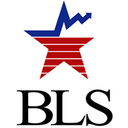- Joined
- Apr 25, 2020
- Messages
- 328
- Reaction score
- 686
- Gender
- Undisclosed
- Political Leaning
- Undisclosed
The biggest culprit for rising prices that's not being talked about is the increasing economic concentration of the American economy in the hands of a relative few giant big corporations with the power to raise prices. If markets were competitive, companies would seek to keep their prices down in order to maintain customer loyalty and demand. When the prices of their supplies rose, they'd cut their profits before they raised prices to their customers, for fear that otherwise a competitor would grab those customers away.
But strange enough, this isn't happening. In fact, even in the face of supply constraints, corporations are raking in record profits. More than 80 percent of big (S&P 500) companies that have reported results this season have topped analysts' earnings forecasts, according to Refinitiv. Obviously, supply constraints have not eroded these profits. Corporations are simply passing the added costs on to their customers. Many are raising their prices even further, and pocketing even more.
How can this be? For a simple and obvious reason: Most don't have to worry about competitors grabbing their customers away. They have so much market power they can relax and continue to rake in big money. The underlying structural problem isn't that government is over-stimulating the economy. It's that big corporations are under competitive.

 www.rawstory.com
www.rawstory.com
But strange enough, this isn't happening. In fact, even in the face of supply constraints, corporations are raking in record profits. More than 80 percent of big (S&P 500) companies that have reported results this season have topped analysts' earnings forecasts, according to Refinitiv. Obviously, supply constraints have not eroded these profits. Corporations are simply passing the added costs on to their customers. Many are raising their prices even further, and pocketing even more.
How can this be? For a simple and obvious reason: Most don't have to worry about competitors grabbing their customers away. They have so much market power they can relax and continue to rake in big money. The underlying structural problem isn't that government is over-stimulating the economy. It's that big corporations are under competitive.

Noted economist explains what's 'really driving' inflation
The biggest culprit for rising prices that's not being talked about is the increasing economic concentration of the American economy in the hands of a relative few giant big corporations with the power to raise prices. If markets were competitive, companies would seek to keep their prices down...
 www.rawstory.com
www.rawstory.com



